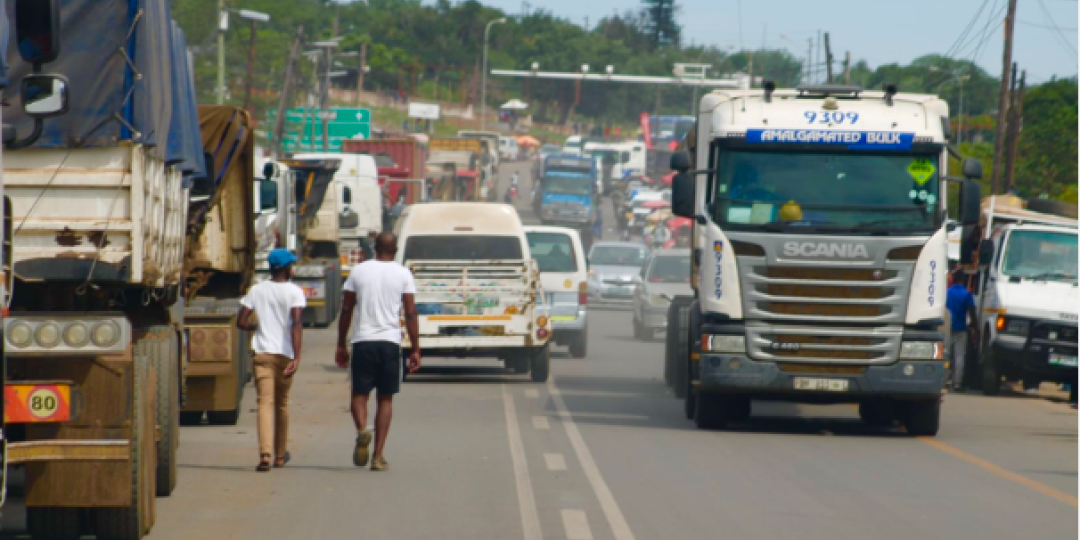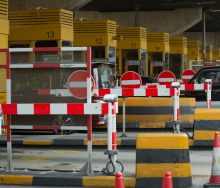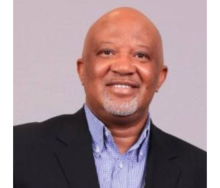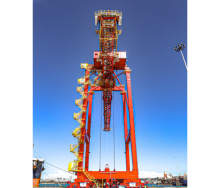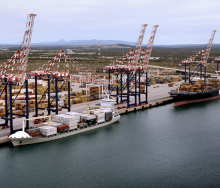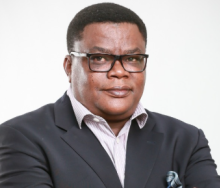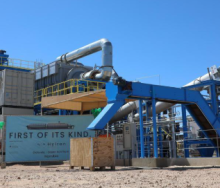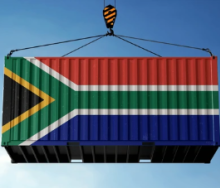From Wednesday, November 13, cross-border hauliers on the Mozambican side of the N4 will be escorted to the truck staging area at Pessene, about halfway from the Ressano Garcia Border Post, a road freight source from Komatipoort has said.
Security measures to protect logistics on the Maputo Corridor had emerged in the light of expected protest action for the next three days, said the source, whose name is withheld for safety reasons.
He said the escorting would be done by the Maputo Port Development Corporation, although this could not be confirmed by the concession company.
Once at Pessene, trucks will not be allowed to leave the secure area to the port if there is civil unrest on the streets of the capital.
To add to the atmosphere of anxiety, truck movement at Kilometre Four (KM4), the truck-staging area at Ressano, was disrupted on Tuesday by a power outage.
Asked what was going on, the source said: “We don’t know. No one is telling us at the moment. We talk to people at Kadumba (the private company responsible for cargo scanning at Ressano), and they say one thing but we receive conflicting information.
“What we do know is that there is no movement at Ressano at the moment. Trucks are backing up at KM4.”
On a transporters group in South Africa, it was also reported that construction workers were blockading the ‘Bambi Road’ in the Steelpoort mining area because of alleged payment issues by contractors.
The source said, as a result, ore carriers from Steelpoort heading to Maputo were coming through in dribs and drabs, bottlenecking at the border.
He said protest action in Mozambique could be expected as soon as Tuesday evening.
“We don’t know what’s going to happen. There’s a police presence in Ressano, and soldiers, but there may not be enough of them.”
The source added that he had heard that Mozambican soldiers at the border were unhappy about getting paid less than troops stationed in the north of the country to protect energy installations as part of the combined forces contingent representing the Southern African Development Community.
“We really don’t know what to expect. Our fleet will not operate at night as it’s simply too risky. Thankfully, transporters are working together. We’ve got our networks of information and help one another out.”
He said drivers in Mozambique had been told not to stop for anyone, unless it was the police or military personnel.
Renewed tension in Mozambique comes after Venâncio Mondlane, the presidential candidate of opposition party, Podemos, called for a new wave of nationwide demonstrations in Mozambique.
The demonstrations are set to last for three days starting on the 13th, targeting all provincial capitals as a challenge to the November 9 elections which Podemos claims were rigged in favour of Mozambique’s ruling party, Frelimo.
Mondlane announced that protests would be held at borders, ports, and in each of the 11 provincial capitals, with the aim of paralysing activities to convey that the people were frustrated. This message was made in a live broadcast on his official Facebook account, as he discussed the “fourth stage” of demonstrations following last week’s unrest that led to the N4 Maputo Corridor and the port shutting down.
Mondlane indicated that the demonstrations would occur in “several phases”, stating that these protests were also directed against occurrences of “kidnappings and hostage-takings” as well as “the murder of the people” by security forces, according to Podemos.
Mondlane added that protests would be held for three days, after which there would be a pause. Speaking from what he referred to as “exile”, he urged citizens from every district to gather in each provincial capital, including Maputo, by Friday.
News reports out of Mozambique state that he called for the protests to extend to the nation’s ports, borders, and transport corridors connecting these facilities, inviting truck drivers to participate. Mondlane clarified that no one was being coerced into joining the protest, stressing that the demonstration's values were being shared, and participation was voluntary.
Commenting on last week’s chaos, Mondlane said he never intended to instigate a coup d’état. He remarked that if a coup had been his objective, it could have been pursued, and he committed that the movement would neither relent nor retreat, while noting that numerous lives had already been lost.
He further clarified that the aim was not to seize power by force, but rather to “pressure the institutions” into achieving “electoral justice” and “a new beginning for Mozambique”. Mondlane stated that this pursuit would require “all kinds of sacrifices” but urged that no acts of vandalism occur.
According to data released by the Mozambican NGO Plataforma Eleitoral Decide, at least five people died, 38 were shot, and 164 were arrested in Mozambique on November 7, when civil unrest on the streets of Maputo and Ressano reached a peak.
Demonstrations by Podemos supporters in Maputo have left a trail of destruction, including fatalities, injuries, arrests, damage to infrastructure, and the looting of commercial establishments.
Data presented by Plataforma Decide indicated that three of the deaths occurred in Maputo, with one in Inhambane province in the south and another in Tete province in central Mozambique. The NGO also reported that 38 people had been shot, with the majority of cases (32) in Maputo, followed by three in Inhambane, one in Maputo province, and one each in the provinces of Zambézia and Tete.
Additionally, out of the 164 individuals arrested, 61 were recorded in Maputo, 51 in Zambézia, 25 in Nampula (in the north), eight in Inhambane, six in Maputo province, four in Sofala (central Mozambique), and one each in Gaza (in the south) and Tete.
The NGO noted that outside Mozambique, at least seven people were detained in Angola in connection with demonstrations contesting the results of the 9 October general elections. – Additional information: Lusa
